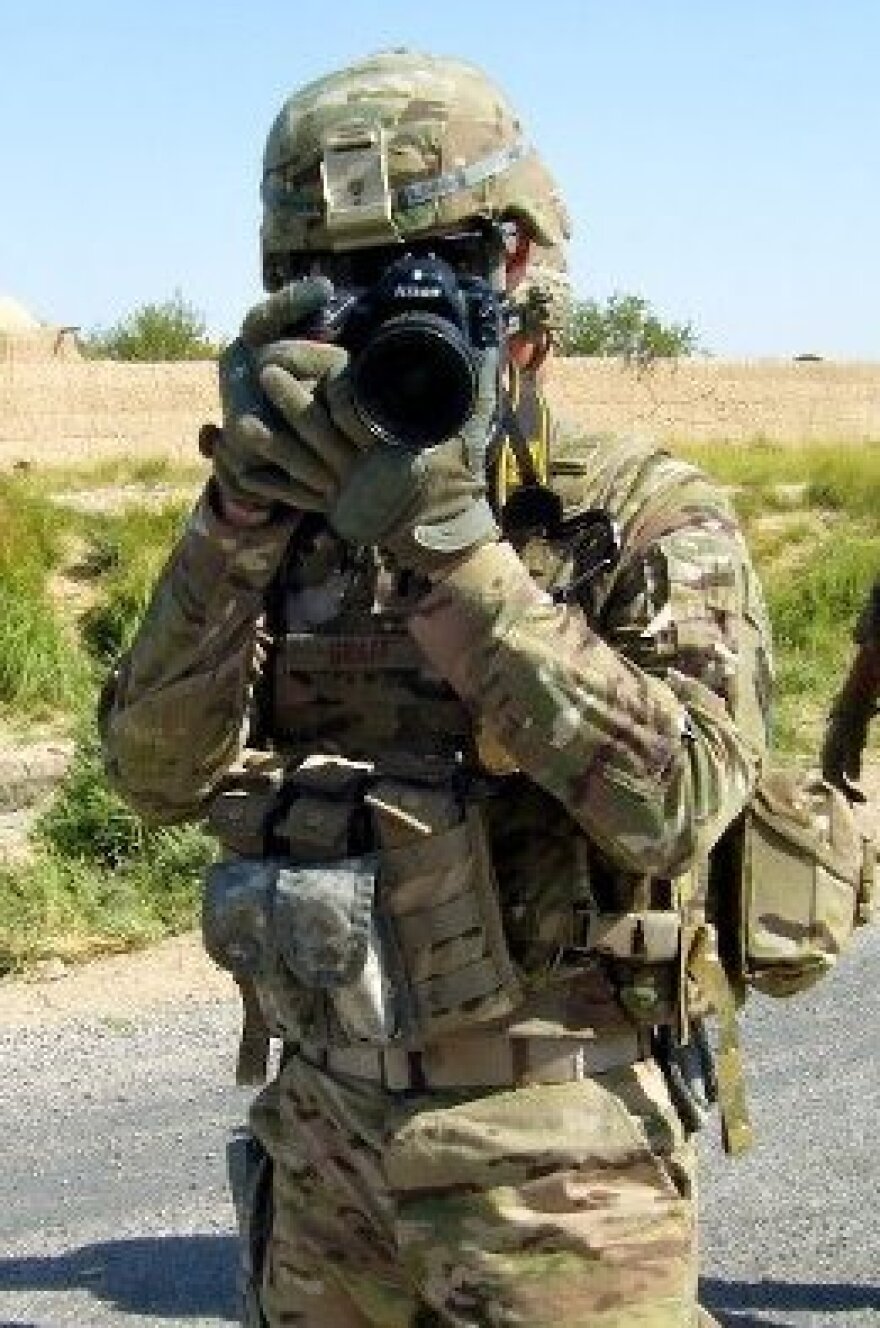Recent news out of Afghanistan has focused mainly on protests and killings linked to the incident when U.S. forces burned some Korans allegedly used to pass messages among prisoners. But there is different news from outlying provinces far removed from Kabul.
For our ongoing series, Off the Base, WUSF’s Bobbie O’Brien talked with former MacDill Air Force 1st Lt. Mark Graff who has spent the last 9 months as a member of a Provincial Reconstruction Team or PRT in the western province of Farah.
BOBBIE O’BRIEN: This was the first deployment of your military career, can you sum up what the experience has been like as a PRT member serving with civilians and members of the Army and Navy?
1st LT. MARK GRAFF: Our goal was to work with the Afghan government, the provincial government, on improving the economy, development and security for Farah Province.
O’BRIEN: Things have certainly changed dramatically in the past couple of weeks. Could you talk to me about how things that happened in Kabul, the burning of the Koran, have affected your job where you are?
GRAFF: One of the things that I always explain to people is that Afghanistan is a very vast country and despite what we all tend to read and see in the news, in eastern Afghanistan that’s not necessarily the case across the entire country. We’re out here way out west. We call it the Wild West of Afghanistan. And things do play out a bit differently here.
That’s not to say that we weren’t very aware of what was going on in Kabul with the protest, the ISAF response, the international response to what went on there. But, just like in any other military situation, we tailored our response and our actions to our specific area. Luckily, things were quite calm here. We didn’t experience to date any negative backlash and we hope that it continues that way and we hope that that’s a product of us interacting with the Afghans in a positive, respectful way.
O’BRIEN: So, you’re continuing to have that interaction and it has not changed dramatically?
GRAFF: We did slow things down for just a few days, but since we have resumed normal operations. I, myself, have not noticed any affects, nor have I heard any of my colleagues in talking about negative effects in that situation.
O’BRIEN: You mentioned you were going to have an opportunity to meet with an organization calling themselves, the Young Afghan Journalists?
GRAFF: I would estimate that they were about 20 or 25, but they were very astute businessmen. They had been doing some freelance writing and reporting for a variety of media outlets. One of them claimed that he had even done some work for AP and Radio Free Europe and other publications and magazines around Farah Province and in Afghanistan.
I met with them along with a few other people from the PRT including Department of State because they were looking to try and do something for the betterment of civil society here in Farah Province through media. Whether that be making a new publication or a radio broadcast or setting up a private radio station, we don’t yet know. But, they promised to come back to us with a project proposal in the coming days. Meeting with these guys it was pretty cool because they referred to themselves as a union or an association of guys that came together and seemed to understand the power of media and communication and wanted to harness that and put it to work.
O’BRIEN: As you transition out, what are some of your top projects that you’ve been able to accomplish during your stay there?
GRAFF: Typically you hear the line: “Oh, it was all about the team!” And in this case, it’s really true because in my position as a Public Affairs Officer, I wasn’t active in implementing or drafting or creating these projects. We had a number of success stories along the way, that be securing funding for 40 or 50 kilometers of road into a district that’s just barren and needed some form of road to connect them to the rest of the province. We just got out of a meeting where we were talking about working with the provincial government to bring a surgery ward and a surgeon to a far-flung distant district.
O’BRIEN: You’re pretty close to completing your first deployment. During you’re deployment, you’ve missed a Valentines Day, you’re first anniversary with Lana. I’m wondering how did it go?
GRAFF: We spent a lot of time, as you and I are right now, communicating via Skype and over the phone, email and Facebook. You wonder how people did it without social media before when I think about letters in WWII taking months to arrive. She and I had made a concerted effort from Day 1 to drop a line via email or Facebook just to say hello. I have to brag a little bit and say that we’ve done very well at communicating as husband and wife.
O’BRIEN: You are looking forward to a few things though when you get back to the states.
GRAFF: I don’t know if we have enough air time for all the things that Lana and I have planned. I can’t wait to get back to Florida. I’m looking forward to taking in my first Spring Training baseball game. I’m going to make the trip to Port St. Lucie and see my Cardinals play the Mets over there. And she and I are going to spend quite a bit of time at MacDill trying to out-process the base in preparation for our next assignment.
O’BRIEN: Have you been given where you’re next posting is?
GRAFF: We’re actually making the transition to Lajes Field in the Azore Islands which belong to Portugal later in May.



